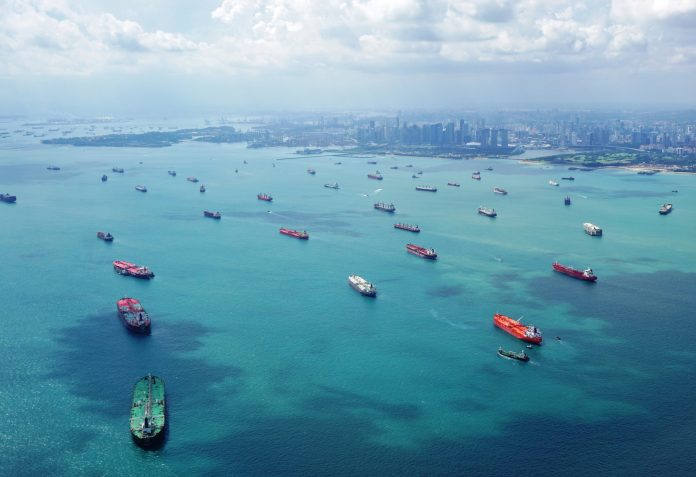Constantine Catsambis, Rapporteur for the EESC opinion on FuelEU Maritime, explains how the FuelEU Maritime Regulation could improve the climate
The FuelEU Maritime proposal has been designed to accelerate the maritime industry’s decarbonisation through the adoption of renewable and low-carbon fuels and technologies, by applying goal-based reduction of Greenhouse Gas (GHG) energy intensity from 2025. The draft Regulation includes ambitious reduction targets for the GHG intensity of marine fuels.
The maritime sector is global by nature, so the introduction of substantial changes to the carbon density of marine fuels should be carried out at a global level through the International Maritime Organization (IMO), which is the United Nations specialised agency for maritime transport.
How does it fit into the bigger picture of the Fit-for-55 package?
The climate carbon neutrality objectives of the Green Deal and the ambitious Fit-for-55 package have been put forward as part of efforts to green and eventually decarbonise the maritime sector along with other sectors. However, within the scope of the Fit-for-55 package, the FuelEU initiative needs to provide synergies, coherence and consistency between supply, distribution and demand.
Shipping’s energy transition to decarbonisation requires investment in developing new zero-carbon or low-carbon marine fuels and related propulsion technologies, without which the long-term goals of the agreed IMO Decarbonisation Strategy and ambitious objectives of the EU Green Deal cannot be achieved. In other words, without them the industry will remain “carbon-captive”.
It is worth pointing out that in a letter addressed to the President of the European Commission Ursula Von der Leyen, the Greek Prime Minister Kyriakos Mitsotakis supported the same views as above. In particular, the letter highlights that there is an immediate and imperative need for research, development and deployment of alternative marine fuels, which should be globally available and in sufficient quantities, and/or the development of new propulsion technologies.
Without these technological developments, the decarbonisation of shipping cannot be achieved.
What is the EESC position in this respect?
The EESC has welcomed, in principle, the FuelEU proposal, while considering that the draft regulation should be harmonised with the IMO regulations due to the international nature of shipping. It has been underlined that the full decarbonisation of shipping requires alternative, low-carbon/zero-carbon marine fuels and/or breakthrough propulsion technologies to become widely available.
To this end, close cooperation with all stakeholders in the maritime cluster and supply chain (e.g., fuel production and energy providers, engine manufacturers, ports, charterers and the workers’ representatives involved in all sectors) is needed.
The EESC noted in its opinion that the responsibility for the development and availability of renewable alternative fuels lies with the fuel suppliers and the uptake of cleaner fuels should be encouraged. For this to happen, the price gap between fossil and alternative fuels needs to be bridged and cleaner fuels need to become more affordable and widely available.
It is also highlighted that ship operators cannot be held responsible for either the quality or the availability of specified fuels. The carbon intensity of marine fuels should be regulated globally and subject to the adequate availability of non-fossil alternatives. These are currently unavailable for deep-sea shipping and will remain so in the near future.
Ships cannot, therefore, be held responsible for bunkering fuels that are either technologically immature or only available in very limited quantities and/or limited geographical areas. This would be comparable to asking car/vehicles users to use a specific fuel mix that is not widely available on the market.
The EESC opinion acknowledges the “polluter pays” principle and recognises charterers’ accountability. The responsibility of charterers, though recognised in the relevant European Commission legislative initiatives (EU ETS, FuelEU Maritime), does not explicitly oblige charterers to assume their responsibility. If the shipowner is made responsible for a ship’s emissions, they would be burdened with the higher CO2 emissions caused by the charterer’s purely economic cost-benefit analysis, which would not be taking into account the negative environmental externalities.
New measure to deal with issue of commercial operators’ responsibility
Such a situation would not only be unfair, but would also be counterproductive. As long as the charterer has no statutory responsibility, they will continue to base all operational decisions on cost considerations alone and will be exempt from the “polluter pays” principle, which must apply properly in shipping as in all other sectors.
At this point, I would like to highlight that the issue of commercial operators’ responsibility, as mentioned above, is also pointed out by Peter Liese, the EU Parliament’s rapporteur on the EU ETS legislative proposal, who suggests an amendment of the Commission’s proposal by introducing a binding clause which establishes a contractual requirement between the shipowner and commercial operator to pass on the costs of the EU ETS.
Furthermore, this proposal introduces a second EU Monitoring, Reporting and Verification (MRV) system. While it is of utmost importance that flexibility is safeguarded, the introduction of double counting or double requirements should be avoided as far as possible by harmonising the methodologies of the EU MRV Regulation and the second system envisaged by the FuelEU Regulation.
Ultimately, as shipping is a truly global industry, global regulations are the most effective way forward. Any measures implemented at the EU level must be compatible with the regulations adopted by the IMO, striking a balance between international legal framework and respective EU legislative initiatives.











